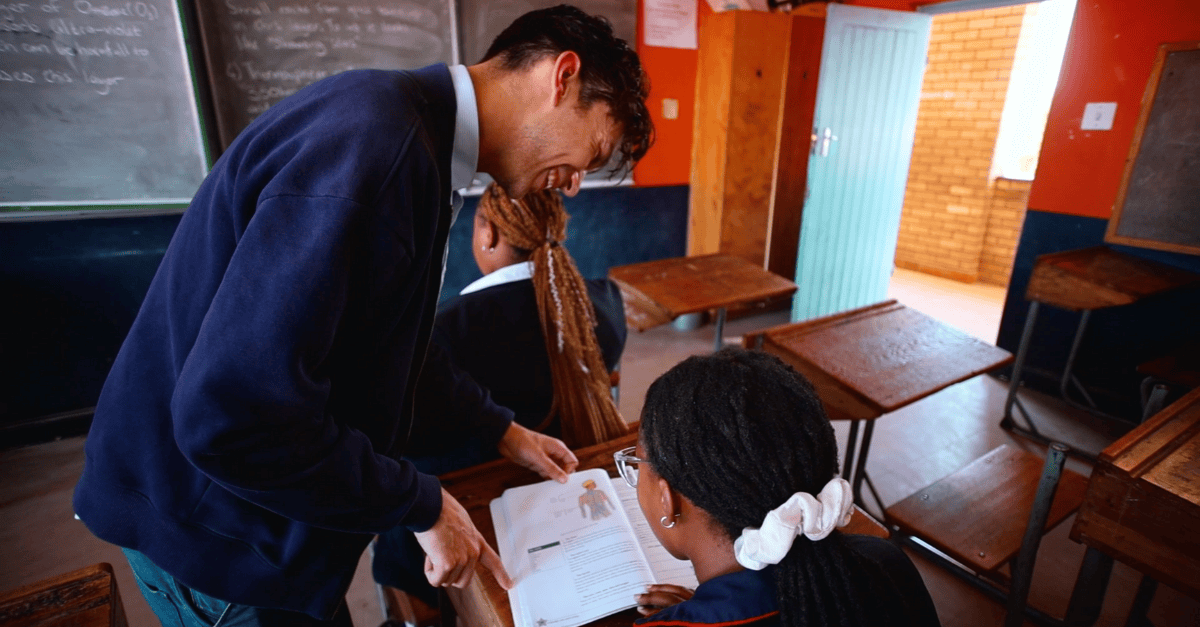Transforming Education: Challenges and Innovations in School Leadership in Ghana

BY: Takyi Michael, Opportunity International EduFinance
The phrase "Keep Quiet!!! Keep Quiet!!!!!!!!" is commonly heard in Ghanaian schools, where many school leaders measure teachers’ success by the level of silence in the classroom—a narrow indicator. School leadership in Ghana is undergoing significant transformation as leaders tackle many challenges and explore innovative solutions to enhance educational outcomes.
This thought leadership piece explores the unique challenges school leaders face in Ghana, including disciplinary issues, classroom management, financial constraints, and innovative approaches to create a positive and inclusive educational environment.
Challenges
The Ghana Education Service (GES) has implemented various measures, including appointing the Deans of Discipline, introducing the "One Student, One Tablet" initiative, and banning corporal punishment. These measures aim to address issues within the school system, but more is needed to tackle the underlying challenges.
Disciplinary Issues
The recent decision by GES to appoint Deans of Discipline in senior high schools reflects an attempt to centralise disciplinary control. This approach, however, may perpetuate the idea that discipline is an external imposition rather than an internal responsibility. Teachers might refer all discipline issues to the Dean, potentially creating an atmosphere of resentment among students and staff. This measure tends to focus on control rather than fostering a holistic approach that considers students' emotional well-being and individual needs.
Another school of thought believes that centralising disciplinary control can also ensure consistent and fair rule application, providing a structured environment where students understand the consequences of their actions.
Banning Corporal Punishment
The GES banned all forms of corporal punishment in 2017 to promote a safer learning environment. While some leaders support this initiative, believing it creates a more humane and respectful atmosphere, others argue that it reduces their ability to manage classrooms effectively and maintain order.
Supporters of the ban assert that corporal punishment can lead to physical and psychological harm, resulting in a culture of fear rather than respect. They advocate for alternative disciplinary methods that teach self-discipline and empathy. However, some educators feel that without corporal punishment, they lack practical tools to immediately address severe behavioural issues, potentially leading to a decline in discipline and academic performance.
Classroom Management
The conversation on classroom management challenges needs a definitive structure, with each school leader having different opinions on best practices. The key to successful management lies in establishing positive and respectful relationships with students rather than merely enforcing rules. School leaders who nurture positive relationships with teachers and students create a safe and inclusive environment that promotes learning.
Financial Constraints
Many schools in Ghana operate with limited financial resources, which affects the ability to provide essential teaching materials, maintain school infrastructure, and support extracurricular activities. In rural areas, there is a significant shortage of qualified teachers. This imbalance affects the quality of education delivered to students.
Innovative Approaches
Despite these challenges, school leaders in Ghana are adopting innovative approaches to improve the quality of education. Some of these innovations include:
- Positive Behavior Support Framework: This involves creating a comprehensive system focusing on prevention, teaching appropriate behaviour, and reinforcing positive actions. This innovative approach helps build a supportive school culture and reduces reliance on punitive measures.
Example: In 2018, Aburi Girls' Senior High School in the Eastern Region implemented a Positive Behaviour Support (PBS) framework. The initiative focused on promoting positive behaviour through rewards and recognition and teaching students appropriate behaviours in various school settings. As a result, the school reported a significant decrease in disciplinary referrals and improved overall student behaviour and academic performance. Teachers noted a more positive school climate and increased student engagement.
Source: Ghana Education Service Report on PBS Implementation, 2019.
- Policy Advocacy and Leadership Training: School leaders are increasingly engaging in advocacy to influence educational policies and ensure they address schools' practical needs. Establishing leadership training programmes equips school leaders with the skills to navigate complex educational landscapes effectively.
Example: The Leadership for Learning (LfL) programme, spearheaded by the Ghana Education Service in collaboration with international partners, aims to equip school leaders with modern leadership skills. This programme includes workshops, peer learning, and mentorship opportunities. Schools participating in the LfL programme, such as Accra Academy, have shown improved administrative efficiency and better educational outcomes. School leaders have been more effective in policy advocacy, leading to positive changes in school management practices and resource allocation.
Source: Leadership for Learning Programme Overview, 2020.
In conclusion, being a school leader in Ghana is like navigating a maze where every turn presents a new challenge. It's a job that requires resilience and the ability to laugh in the face of adversity. Because if you can't find humour in the chaos, you might just quit.



.png)